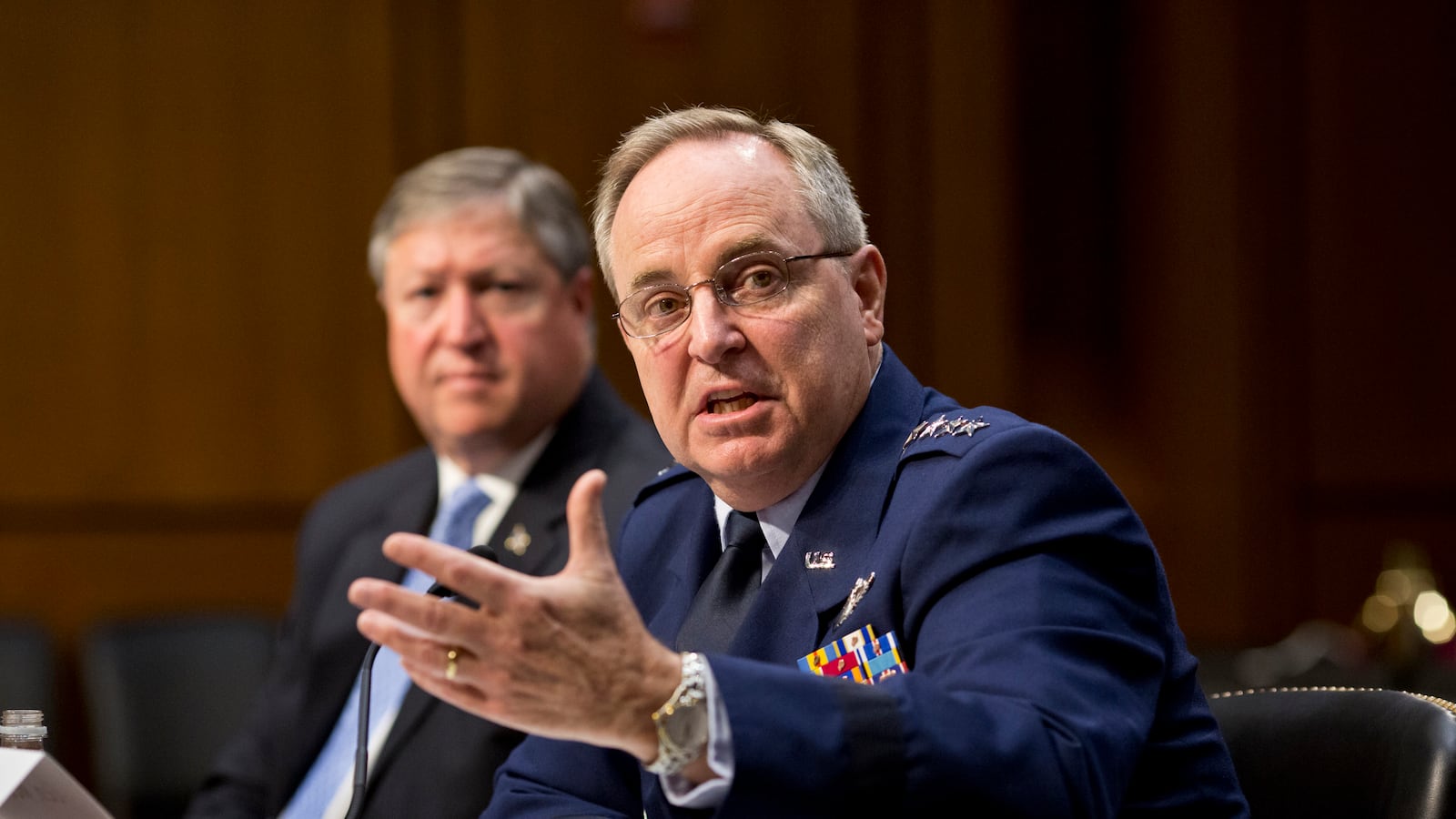If it was possible to make a bad situation worse, that’s what Air Force Chief of Staff Gen. Mark Welsh managed to do at a Senate hearing Tuesday morning when he blamed an increase in sexual assault in the military on the “hookup” culture prevalent among young people. Welsh said 20 percent of female recruits report being assaulted before they joined the military. “They come in from a society where this occurs,” he said.

Not only did Welsh’s remark seem to place blame on the victim, it also revealed a tendency to view sexual assault in the most benign way, as a date gone bad or a breakdown in communications rather than a violent act. New York Sen. Kirsten Gillibrand, the first woman to chair the personnel subcommittee of the Armed Services Committee, told The Daily Beast it was “outrageous testimony” that showed a fundamental misunderstanding about the violent nature of sexual assault. The senator is introducing a bill next week to take felony crimes out of the chain of command so that rape victims will feel more able to report violent assault without fearing repercussions from officers up the line.
Senators could barely contain their disgust as they questioned Air Force officials about the arrest over the weekend of the officer in charge of the service’s Sexual Prevention and Response program. Lt. Col. Jeffrey Krusinski was charged with sexual battery after allegedly grabbing and groping a woman in a suburban Virginia parking lot. She fought back, and Krusinski’s scratched and bloodied face in his mug shot popped up on cable television all day, often in a split screen of him in uniform giving a presentation.

The Air Force moved quickly to remove Krusinski from duty and to gain jurisdiction over the case, which Welsh said is standard procedure. Asked if there were any indications that Krusinski could behave in such a way, the officials on the panel said there were none. “The accusation is that he was drunk and sexually attacked a complete stranger in a parking lot,” Missouri Sen. Claire McCaskill interjected. Upon hearing of Krusinski’s arrest, McCaskill tweeted: “There are no words. Air Force Officer in charge of sexual assault prevention arrested for? You guessed it.”
The arrest couldn’t be more embarrassing to the military, given both the nature of Krusinski’s alleged crime and its timing—just days before the Pentagon released its survey showing a 6 percent rise in sexual assaults from 3,192 incidents reported in fiscal year 2011 to 3,374 reported in fiscal year 2012. But that’s only part of the story. The real number is believed to be 26,000, up from 19,000 in 2011, with only a small percentage—238 of the 3,192 reported incidents—resulting in a conviction.
Questioned during a joint press conference with the visiting president of South Korea, President Obama said he has “no tolerance” for sexual assault and that anybody who does it in the military is “betraying the uniform that they’re wearing.” He said he told Defense Secretary Chuck Hagel, “We're going to have to not just step up our game, we have to exponentially step up our game, to go at this thing hard.”
The president said he’s not looking for “more speeches or awareness programs or training,” that people have to stop looking the other way. “If we find out somebody is engaging in this stuff, they’ve got to be held accountable—prosecuted, stripped of their positions, court-martialed, fired, dishonorably discharged. Period. It’s not acceptable.”
For his part, Hagel on Tuesday said that “the frequency of this crime and the perception that there is tolerance of it could very well undermine our ability to effectively carry out the mission and to recruit and retain the good people we need.” He ordered several immediate new initiatives he said would help control the problem.
There are now seven women senators on the Armed Services Committee, and their presence is forcing the Pentagon and the administration to take notice. McCaskill is blocking Obama’s nomination of Lt. Gen. Susan Helms to become vice commander of the Air Force’s Space Command. The first woman the military sent into space, Helms was on the space shuttle Endeavor’s crew in the early 1990s. What does her appointment have to do with sexual assault? It turns out that Helms, in a previously unpublicized case, intervened on behalf of a fellow pilot and Air Force captain who had been convicted by a military jury of aggravated sexual assault.
Without publicly revealing why, she overturned the jury verdict against the advice of legal counsel, which under military justice she apparently had the power to do. In a memo that recently came to light, she explained that in reading through the evidence, she found the captain’s defense credible.
Whether her judgment is right or wrong, it raises questions about military justice that higher-ups can so easily reverse a military jury. Gillibrand told the Beast that she supports McCaskill’s hold on the Helms nomination. Gillibrand added that she is including in her legislation a provision that Hagel has already proposed but which must be done legislatively: the elimination of what’s known as Article 60, which gives “convening authorities” the power to overturn a military jury verdict.
This is not a new challenge for the military. It’s been more than 20 years since the Tailhook scandal exposed a Navy and Marine Corps culture where women were sexually assaulted and male perpetrators rarely held accountable. Since then, with women gaining more equal status in the military and on Capitol Hill, there has been incremental progress, but last year’s Oscar-nominated film The Invisible War revealed there is still much to be done, and male service members too have been victims of sexual assault.
What the military has to confront is criminality, not a hookup culture.





